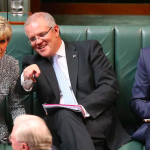Anti-Fake News Laws: Preventing Misinformation or Silencing Dissent?

Fake news is a fairly recent concept that has accompanied the rise of social media. And concerns about the spread of false information have become more intense following allegations of the Russian use of misinformation to influence the 2016 US elections and Brexit vote in the UK.
Ironically, the benefactor of Russia’s alleged campaign, Donald Trump, has been one of the greatest promoters of the concept of fake news. The US president has been constantly casting aspersions about particular journalists and the United States media generally for supposedly spreading lies about his administration.
At the same time, Trump has consistently used this technique of dispersing false information in the media. On 1 August, it was revealed the president had made 4,229 false or misleading claims during his time in office.
In recent years, companies like Google, Facebook and Twitter have been implementing systems to block fake news. Just last month, these and other companies agreed to take further measures to combat such reporting, due to concerns it can influence elections.
The tech companies agreed to step up their procedures to tackle disinformation in order to stave off the enactment of further heavy-handed anti-fake news laws in European nations, and the introduction of such laws in Asia.
Indeed, as more nations – including the Philippines and Singapore – consider enacting anti-fake news legislation, critics are warning that such prohibitions not only undermine free speech, but are more to do with silencing opposition to government.
Propaganda in high-tech clothes
UNSW School of Computer Science and Engineering senior lecturer, Dr Eric Martin, explains that what’s referred to as fake news is basically old-style propaganda that’s been used to influence people throughout history. The new term essentially denotes its use over the internet, especially social media.
“Fake news is often used by politicians or media to refer to what is – or what is claimed to be – propaganda originating from certain opponents,” Dr Martin told Sydney Criminal Lawyers®. “It then tends to trigger emotional – more than rational – reactions.”
According to Dr Martin, the concept of fake news “evokes the uncontrollable power of a global technology” that allows for big data analysis to help formulate a message that can influence “a well identified fraction of the population”.
The doctor points out that one of the greatest examples of fake news – prior to the term being coined – “was the claim that Saddam Hussein had weapons of mass destruction that justified intervention in Iraq, which started the process of the destabilisation of the whole Middle East.”
A chilling effect on dissent
Germany kicked off the global trend in enacting anti-fake news laws when it passed the New Enforcement Act in June last year. These laws require social media platforms to remove content deemed to be fake news or hate speech. Failure to do so can result in a fine of up to 50 million euros.
Human Rights Watch asserts that the laws undermine free speech in two ways. Firstly, they require private companies to determine speech that violates the law, under conditions that are likely to suppress lawful speech. Secondly, the laws generally fail to provide judicial oversight over government censorship pressures.
France passed laws in July that allow courts to determine whether reports made during elections campaigns are fake news that should be removed. There, candidates can sue for the removal of news reports. Social media companies are also required to disclose funding sources of sponsored content.
Opponents of the French laws stressed that they could be used by politicians to suppress embarrassing or comprising reports. They warned that if a more authoritarian government gained office in the future, the potential for these laws to be misused could be catastrophic.
Malaysia passed the most draconian anti-fake news laws to date in April this year. Enacted just days before the federal election, the Anti-Fake News Act allows for individuals to be imprisoned for up to six years. The laws even extend to fake news offences committed outside the country.
The Malaysian laws were first applied less than a month after being passed. A man who posted a YouTube clip asserting that police took 50 minutes to respond to a shooting in Kuala Lumpur was charged with publishing fake news. The man, who pleaded guilty and apologised, was sent to prison for a month.
A recent attempt to repeal the Malaysian fake news laws was blocked by the opposition-led Senate.
Global opinion
Dr Martin points to the Reuters Institute for Journalism’s Digital News Report 2018 as an authority on fake news. The report outlines that 54 percent of surveyed people around the globe were concerned about the spread of disinformation.
The report found there’s been a rise in people spontaneously raising the issue of fake news, and they put this down to the extensive use of the term by certain politicians to describe media reports they don’t like.
The authors further outline that while many people says they are concerned, they often struggled to pinpoint actual examples of fake news. Of concern was that 61 percent of respondents felt governments should do more to prevent the spread of such news, a view that can facilitate the enactment of legislation which is then used to suppress dissent.
Blatant suppression
Egyptian actress Amal Fathy was recently sentenced to two years in prison on charges of spreading fake news, after she posted a video of herself on Facebook detailing how she’d been sexually harassed on a visit to the bank and criticising the government for failing to protect women.
In a country where the harassment of women is notorious and widespread, authorities also sentenced Mona el-Mazbouh, a Lebanese tourist, to eight years imprisonment in July for posting a similar video about her experience. The sentence was eventually suspended, and she returned to Lebanon.
“Fake news is part of a much broader trend where freedom of speech is reduced, in various ways, in relation to political opinions in some countries and to societal matters in others,” Dr Martin continues. He adds that at the moment, Australia is not following in the global trend.
The potential to follow suit
However, Australian authorities have been quietly stifling dissent in a number of other ways.
Recently passed anti-espionage laws provide that protesters who prevent access to Commonwealth property can be imprisoned for up to 20 years, while journalists who reporting unfavourably on Australian interests can be locked up for 25 years.
New NSW regulations that came into effect in July saw the state government continue restrictions on protests and demonstrations on Crown land, property which accounts for around 40 percent of all the land in this state.
And while Australia continues to be the only democratic nation in the world not to have a federal bill of rights guaranteeing citizens’ basic freedoms, it would be very easy for Australian politicians to move from the threat of terrorism to the prevalence of fake laws as a justification for legislation which suppresses dissent.








